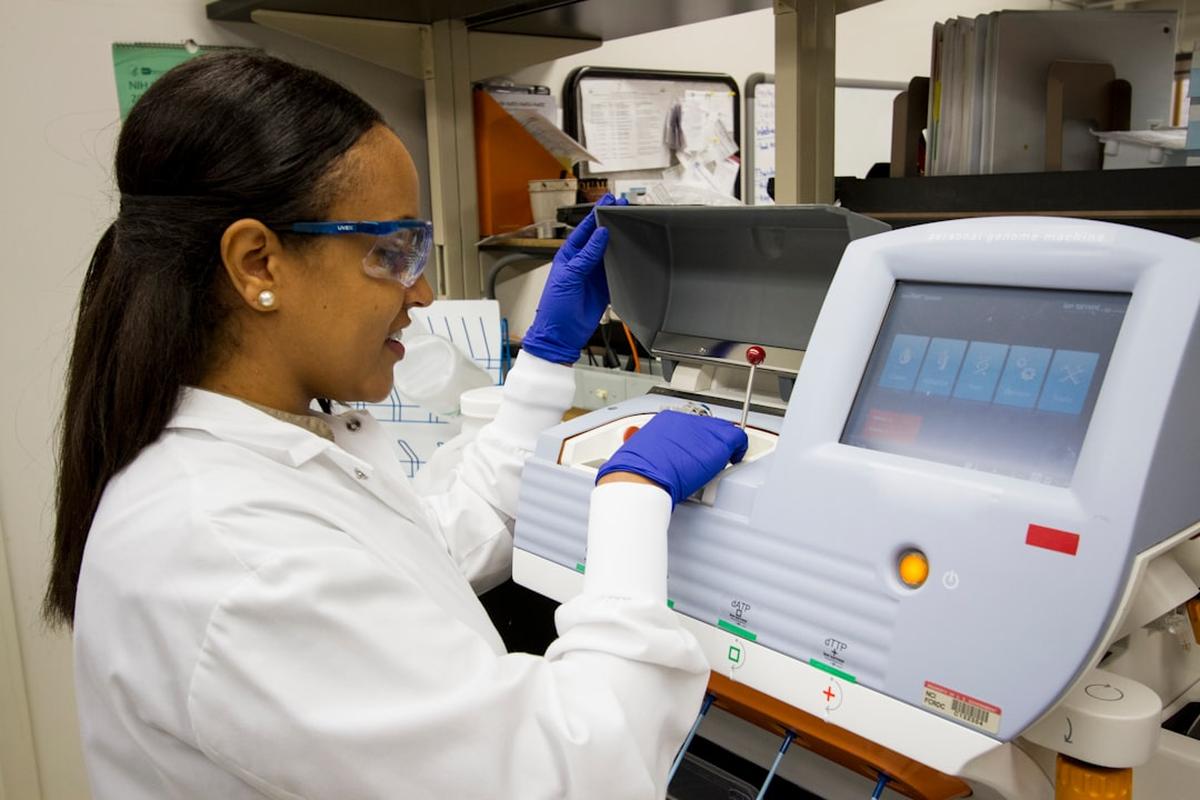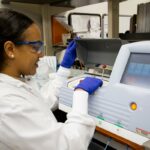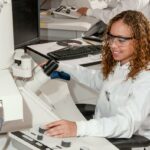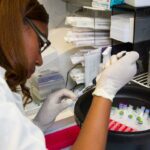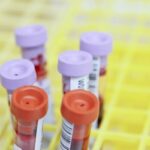Deoxyribonucleic acid (DNA), the hereditary material in humans and almost all other organisms, is a fascinating and complex molecule. It holds the instructions needed for an organism to develop, survive, and reproduce. However, this blueprint of life is not invincible; it can be altered or mutated by various factors, leading to changes in an organism’s traits or even the onset of diseases. This article aims to shed light on the concept of DNA alteration, the factors that can cause it, and its implications for human health.
Understanding Mutagens
Mutagens are agents that can cause changes in the DNA sequence of an organism. They play a crucial role in DNA alteration, causing mutations that can lead to various health issues, including cancer. Mutagens can be physical, such as radiation, or chemical, like certain toxins. Biological mutagens, such as viruses, can also alter DNA. Understanding the types of mutagens and how they interact with DNA is vital for preventing and treating diseases caused by DNA alteration.
Environmental Factors that Can Alter DNA
Exposure to Certain Chemicals
Our environment is riddled with chemicals that can interact with our DNA. Pesticides and herbicides, for instance, are known to cause DNA damage, leading to mutations. Heavy metals, such as lead and mercury, can also interact with DNA, causing alterations that can result in various health issues.
Ultraviolet Radiation
Ultraviolet (UV) radiation, particularly from the sun and tanning beds, is another significant environmental factor that can alter DNA. It can cause direct DNA damage, leading to skin cancer and other health problems. Regular use of sunscreen and avoiding excessive sun exposure are crucial in preventing UV-induced DNA damage.
Air Pollution
Air pollution, including smoke, smog, and industrial emissions, can also cause DNA alterations. These pollutants contain a myriad of harmful substances that can interact with and damage DNA, leading to mutations and various health issues.
Lifestyle Factors that Can Alter DNA
Diet and Nutrition
What we eat can significantly impact our DNA. Processed foods and alcohol, for instance, contain chemicals that can cause DNA damage, leading to mutations. Maintaining a balanced diet rich in fruits, vegetables, and whole grains can help protect our DNA from damage.
Physical Activity
Physical activity is a double-edged sword when it comes to DNA alteration. While moderate exercise can help protect against DNA damage, excessive physical activity can lead to oxidative stress, which can damage DNA.
Smoking and Drug Use
Smoking and drug use are among the most damaging lifestyle factors for DNA. They introduce a host of harmful chemicals into the body, which can interact with and damage DNA, leading to mutations and various health issues.
Medical Treatments and DNA Alteration
Radiation Therapy
While radiation therapy is a potent tool in the fight against cancer, it can also cause DNA damage, leading to mutations. However, the benefits of this treatment often outweigh the risks, and strategies are in place to minimize DNA damage during therapy.
Chemotherapy
Like radiation therapy, chemotherapy can also cause DNA damage. However, this is usually a calculated risk, as the aim of chemotherapy is to kill cancer cells, which often involves damaging their DNA.
Gene Therapy
Gene therapy is a novel medical treatment that involves altering the patient’s DNA to treat or prevent disease. While this therapy holds great promise, it also carries risks, including unintended DNA alterations.
Genetic Mutations and Diseases
DNA alterations can lead to genetic mutations, which can cause various diseases. For instance, mutations in the BRCA1 and BRCA2 genes can increase the risk of breast and ovarian cancer. Other diseases, such as cystic fibrosis and sickle cell anemia, are also caused by genetic mutations.
Prevention and Mitigation of DNA Alteration
Preventing and mitigating DNA alteration involves making healthy lifestyle choices, such as maintaining a balanced diet, exercising moderately, and avoiding smoking and excessive alcohol consumption. Regular medical check-ups can also help detect DNA alterations early, allowing for timely intervention. Genetic counseling and testing can provide valuable information about an individual’s risk of diseases caused by DNA alterations.
The Future of DNA Alteration Research
Current research on DNA alteration is focused on understanding the mechanisms of DNA damage and repair, developing novel therapies for diseases caused by DNA alterations, and improving methods for detecting DNA alterations. With continued research and technological advancements, we can look forward to breakthroughs and discoveries that will significantly improve our ability to prevent, detect, and treat diseases caused by DNA alterations.
Conclusion
Understanding DNA alteration and the factors that can cause it is crucial for preventing and treating diseases. While we cannot control all the factors that can alter our DNA, we can make lifestyle choices that minimize our risk of DNA damage. By staying informed about the latest research and advancements in the field, we can also take advantage of new therapies and technologies that can help us maintain our genetic health.
Frequently Asked Questions
What is DNA alteration?
DNA alteration refers to changes in the DNA sequence of an organism. These changes can be caused by various factors, including environmental factors, lifestyle choices, and medical treatments.
What are mutagens?
Mutagens are agents that can cause changes in the DNA sequence of an organism. They can be physical, such as radiation; chemical, like certain toxins; or biological, such as viruses.
How can lifestyle choices affect DNA?
Lifestyle choices, such as diet, physical activity, smoking, and alcohol consumption, can significantly impact our DNA. These factors can introduce harmful substances into the body, which can interact with and damage DNA, leading to mutations and various health issues.
What is gene therapy?
Gene therapy is a novel medical treatment that involves altering the patient’s DNA to treat or prevent disease. While this therapy holds great promise, it also carries risks, including unintended DNA alterations.
How can DNA alterations lead to diseases?
DNA alterations can lead to genetic mutations, which can disrupt the normal functioning of genes and lead to various diseases. For instance, mutations in the BRCA1 and BRCA2 genes can increase the risk of breast and ovarian cancer.
How can we prevent DNA alteration?
Preventing DNA alteration involves making healthy lifestyle choices, such as maintaining a balanced diet, exercising moderately, and avoiding smoking and excessive alcohol consumption. Regular medical check-ups can also help detect DNA alterations early, allowing for timely intervention.
References:
- National Human Genome Research Institute. (2020). What is DNA? Retrieved from https://www.genome.gov/about-genomics/fact-sheets/Deoxyribonucleic-Acid-Fact-Sheet
- National Cancer Institute. (2019). Chemicals in Meat Cooked at High Temperatures and Cancer Risk. Retrieved from https://www.cancer.gov/about-cancer/causes-prevention/risk/diet/cooked-meats-fact-sheet
- American Cancer Society. (2019). Known and Probable Human Carcinogens. Retrieved from https://www.cancer.org/cancer/cancer-causes/general-info/known-and-probable-human-carcinogens.html
- World Health Organization. (2018). Ambient (outdoor) air quality and health. Retrieved from https://www.who.int/news-room/fact-sheets/detail/ambient-(outdoor)-air-quality-and-health
- Mayo Clinic. (2020). Gene therapy. Retrieved from https://www.mayoclinic.org/tests-procedures/gene-therapy/about/pac-20384619
- National Institutes of Health. (2020). Genetics Home Reference. Retrieved from https://ghr.nlm.nih.gov/primer/mutationsanddisorders/genemutation
- American Society of Clinical Oncology. (2019). Understanding Genetic Testing for Cancer. Retrieved from https://www.cancer.net/navigating-cancer-care/cancer-basics/genetics/understanding-genetic-testing-cancer

